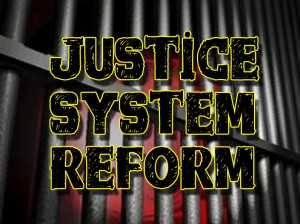 JUNEAU – Alaska Wednesday launched a comprehensive review of the state’s criminal justice system aimed at developing data-driven reforms to better protect public safety, hold offenders accountable, and control corrections costs. Governor Bill Walker, Chief Justice Dana Fabe, Senate President Kevin Meyer, House Speaker Mike Chenault, and Attorney General Craig Richards have charged the Alaska Criminal Justice Commission with submitting recommendations to the Governor and Legislature in December for consideration during the 2016 legislative session.
JUNEAU – Alaska Wednesday launched a comprehensive review of the state’s criminal justice system aimed at developing data-driven reforms to better protect public safety, hold offenders accountable, and control corrections costs. Governor Bill Walker, Chief Justice Dana Fabe, Senate President Kevin Meyer, House Speaker Mike Chenault, and Attorney General Craig Richards have charged the Alaska Criminal Justice Commission with submitting recommendations to the Governor and Legislature in December for consideration during the 2016 legislative session.
“I am confident that we can find ways to make our communities safer and cut the growing cost of our corrections system,” said Governor Walker. “With the Criminal Justice Commission, we have the right people and the right process to generate reforms that will improve public safety by keeping violent and career criminals behind bars and directing resources to programs that reduce rates of re-offending.”
The state’s unified jail and prison population has grown by 27 percent over the past decade, nearly three times faster than the state’s resident population. Alaska currently spends over $300 million annually on corrections, up 50 percent since 2005. Despite this prison population and cost, Alaskans are not getting a good return on our investment: nearly two out of every three inmates who leave Alaska’s prisons are back to prison or jail within three years.
“Alaska’s prisons and jails are filled to capacity. Without reform, the state will have to spend hundreds of millions of dollars to keep up with the growth,” said Senate President Meyer. “This process will help us identify the cost-effective, evidence-based policies that work to reduce recidivism and make our state safer.”
“We’ve charged the commission with finding ways Alaska can improve our efforts to prevent crime and recidivism,” said House Speaker Chenault. “We need to ensure there’s enough prison space for serious and chronic criminals while shifting lower-level offenders to more effective, less expensive alternative sanctions like drug courts, mental health treatment, and intensive supervision.”
“The Commission members have decades of criminal justice experience, and represent a diverse range of stakeholders, including legislators, judges, attorneys, agency heads, advocates for crime victims, and Alaska Natives,” said Chief Justice Fabe. “They all are committed to developing stronger corrections policies that will make our system as fair and effective as possible.”
“This is a vital step in creating more cost efficiencies in our criminal justice system, while still ensuring the highest level of public safety,” said Attorney General Richards. “While incarceration plays a critical role in locking up violent and dangerous offenders, there may be viable and cost-effective alternatives for lower-level offenders. With public safety as the top priority, the commission will explore these alternatives and determine what would work best for our state.”
The state will receive technical assistance from The Pew Charitable Trusts through the Justice Reinvestment Initiative, a public-private partnership between Pew and the U.S. Department of Justice’s Bureau of Justice Assistance. Over the past several years, over 25 states—including Georgia, Mississippi, Utah, South Dakota, and Texas—have enacted justice reinvestment strategies to control their corrections spending and protect public safety by focusing their prison space on serious, chronic, and violent offenders, and investing savings from averted prison growth into probation, parole, and other mandatory supervision practices that save state dollars and cut crime.







